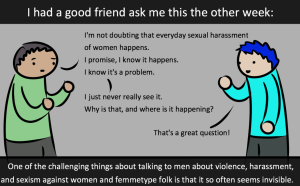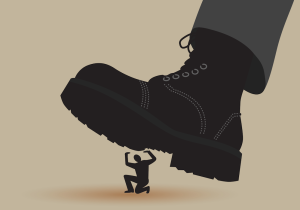(Content Warning: sexual assault)

Source: ImgKid
Many survivors of sexual assault will experience changes or difficulties when engaging in sexual activity afterward.
When we conceptualize the ways a person is changed after sexual assault – whether big or small, temporary or permanent, and anything in between – we must consider the impact that sexual assault has on a person’s sexual self.
Sexual assault can change the way a person experiences sex. A person’s sexual desires, drive, preferences, and comfort can change in a multitude of ways after experiencing sexual violence.
We have a shared social stereotype about sex as impossible after rape. We like to think of sexual assault survivors as broken and damaged and unable to ever function “normally” in any way, especially sexually.
Well, that’s fucked up, and it’s just objectively false.
It’s true that sex is often more difficult after a sexual assault, but it’s entirely false that a survivor will not be capable of engaging in healthy sex.
That’s just hurtful rhetoric that relies too heavily on the “dirty lollipop” version of sex — that once a person loses their “virginity,” they’re worthless.
That’s not true in the case of consensual sex, and it’s really not true in the case of sexual assault.
But to experience difficulty — emotionally or physically — is an entirely real and legitimate experience, and one that is shared among many people who have experienced sexual violence of any form, and at any time.
It’s almost like the body and the mind can’t quite tell that consensual sex with a safe partner is different from the assault itself because physically, many of the actions are the same.
If someone was held down while being raped, for example, it only makes sense that being held down (even consensually) or being on the bottom (again, even consensually) could be a triggering experience.
This is one of the many effects that survivors of sexual violence experience. This can take shape physically as well as emotionally.
But please, if you experience physical pain during sexual activity, especially after an assault, please talk to a health care provider. It’s possible that the body is holding emotional trauma, but it’s also possible that the body was injured and needs care.
Sometimes it feels hard to exist in a body after being assaulted, and sometimes it feels even harder to experience physical pleasure. Survivors find themselves wondering if they deserve to feel pleasure, if it’s safe to feel pleasure, how in the world they will ever be able to survive physical intimacy with another person.
These questions and fears are entirely legitimate.
And we all deserve a healthy sex life if we want one. So here are some things to keep in mind as you embark on the journey of understanding your sexuality after an assault:
You deserve goodness. You, as a human creature, deserve goodness. This is something that I know unequivocally. I know this from the depth of my being, that you, dear human, deserve goodness.
You deserve to be touched and seen and known, if that’s what your deepest heart desires.
You also deserve to be touched and seen and known on your own terms and at your own pace.
You deserve to declare the terms under which you engage in any sexual activity. I say this despite it being overwhelmingly obvious to those of us who believe in the necessity of consent (which is all of us) because I want you to know that even if you are married, even if you are in a relationship, even if you were having sex all the fucking time before your assault, even if anything, you don’t owe anyone sex.
Ever.
If you need a break from sexual activity, take it. You deserve the time and space. If you need an increase in sexual activity, go for it, as long as it’s safe and consensual. You deserve that, too.
Now that we’ve cleared up that you deserve a healthy sex life if that’s what your heart and body desire, here are some suggestions for building a healthy sexual practice that enables you to feel safer in your body and safer experiencing physical pleasure.
1. Take a Bath
It sounds simple, right? And it’s advice that well-intentioned people often give. “Take a bath; you’ll feel better!” they say, without fully understanding just how intolerable and unsafe it can feel to be naked and exposed, let alone naked and exposed in a situation that is supposed to be relaxing and calm.
But that’s why it’s so important to start here.
How can anyone expect to feel safe and comfortable while naked in the presence of another person without feeling safe and comfortable while naked alone?
This is true for everyone, but it’s especially true of survivors of sexual assault.
At the time of a sexual assault, a war was enacted upon a survivor’s body. This body becomes a relic of a battleground — a space where violence has permeated all boundaries, a space that becomes dangerous to inhabit.
And it’s impossible to ignore that we live inside of a body when we’re naked.
So, survivors, take a bath.
Allow yourself to slip into the bath slowly and gingerly. Feel the glorious water on your skin as you dip your toe in the hot water. Feel it rise and cover your skin as you relax into the tub. Allow yourself to notice where the water pools on your body, what the water looks like when it drips on your skin.
If you’re feeling especially courageous, look at your body under the water. Notice the color of your skin, the wrinkles of your fingers, the way your body folds and stretches in the water. If you can, notice these sensations and phenomena with a gentle kindness that you direct to yourself.
Make these observations without judgment, and let the story in your mind flow lovingly. If you feel yourself feeling fearful or mean spirited, gently steer your mind to a more loving space.
If this exercise feels unbearable, that’s okay. Allow yourself to move at the pace your body and heart need. Modify this exercise by using bubble bath that will allow you to cover parts of yourself that feel intolerable to notice or by using a bath bomb that will turn the water a darker shade to obscure the shape of your body.
The point of this exercise is to ease yourself into noticing the intimacy and bravery that are inherent in having a body. Celebrate it, in whatever way feels safest.
2. Masturbate
There is no better way to increase comfort with your sexual self than with masturbation. It’s hard to imagine a healthy way to feel safe and comfortable with intimacy with another person, but not alone.
After all, we have to love ourselves before we can truly experience partnered love, right?
So practice touching your body. Feel the folds of your labia, the skin on your penis, the way your body is soft in places and hard in others. Notice what feels good, what doesn’t feel good. Lovingly observe the places that tickle, the places that excite you, the places that do nothing for you.
Although at the time of your assault, you didn’t have control of your body, you do now. Create an environment that feels safe. Dim the lights or turn on every light in the house, turn off all sounds or leave the music blaring. Do whatever you need to do to feel physically safe before engaging in self-pleasure.
Touch your body as if to reclaim it: This is yours; this belongs to you.
It must be fully yours before it is truly safe to share with someone else. Use self-pleasure as a tool for declaring ownership of your sexual self.
3. Talk About It
Do you have a thing for someone in particular? Is there a person who’s caught your eye? Do you feel as much love and ownership of your body as feels safe to share with another person? If so, awesome! Get yours.
But talk about it first.
Talking about it can take any shape that feels appropriate and safe to you. Maybe you will sit your partner down for a formal and detailed conversation about your history, present state, and future expectations. Maybe you’ll casually mention to your partner, “Hey, I’ve been through some stuff, so let’s take it slow, okay?” More likely, the conversation will fit somewhere in the middle.
Whatever shape this conversation takes, it’s better than silence. Really.
Sexual assault itself exists in silent secrecy. You deserve to bring your healing into the light by talking about it with a partner if it feels safe to do so.
If it doesn’t feel safe to talk about with a partner, ask yourself some questions before moving forward: Why doesn’t it feel safe? What leaves me feeling unsafe? What would I need to be different in order to feel safe? Is there anyone who is safe? Does this mean that I’m not ready for sex, that this isn’t the right person, or that I should follow another path?
Trust your gut, and engage in conversations that feel safe with people who feel safe. I promise that you’ll feel better if you do.
4. Treat Yourself Kindly
Remember that having sex easily once doesn’t mean that you will always have simple sex, just as having sex with difficulty once doesn’t indicate that sex will always feel unsafe or hard.
Remember that recovery from trauma is not linear. There will be good days and bad days. Triggers will feel intense on some days and manageable on others.
Be kind and gentle with yourself as you embark on this particular piece of your healing journey.
You deserve kindness directed towards your whole and complete self, including your sexual self. Your history of sexual violence does not negate that.
***
As you embark on the journey to reclaim your sexual self after an assault, use the tools of good self-care to treat yourself with loving kindness in every step you take to recovery.
You deserve it.
[do_widget id=”text-101″]
Sarah Ogden Trotta is a Contributing Writer for Everyday Feminism and psychotherapist at ContactLifeline, Delaware’s Rape Crisis Center. She can be reached at [email protected]. Follow her on Twitter @xsogden. Read her articles here.
Search our 3000+ articles!
Read our articles about:
Our online racial justice training
Used by hundreds of universities, non-profits, and businesses.
Click to learn more




















